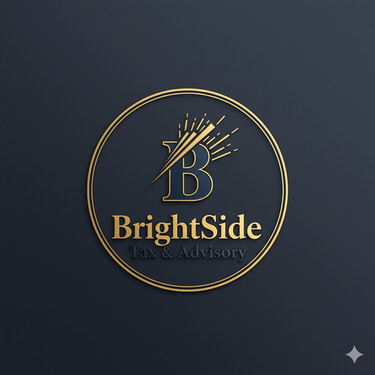Book a free consultation with us by just clicking the button below.
Small Business and Sole Trader Tax Return
Simple, clear tax returns for small and sole traders in Sydney and across Australia
What's Included
We provide best tax return services tailored for Sydney businesses, sole traders and beyond. We help you maximize your tax benefits by providing you comprehensive tax planning that best suits your circumstances and help you lower your tax bills.
Business Income & Expense Review
A detailed review of your income and expenses to ensure nothing is missed and your financial records are 100% accurate.
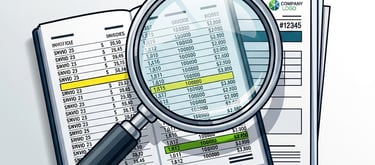

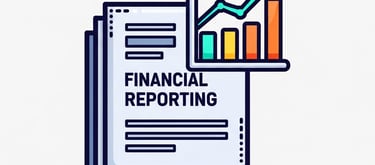

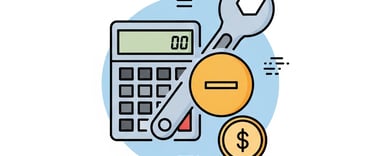

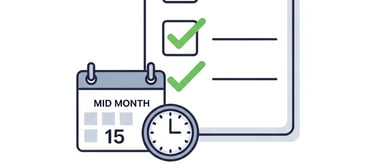

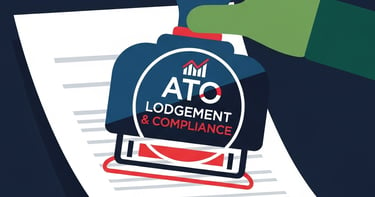

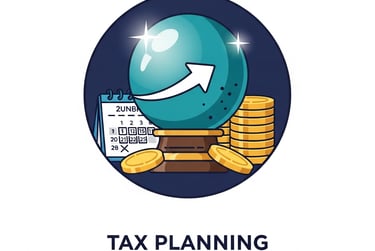

Preparation of key statements: P&L and Balance Sheet, for clear and accurate view of your business performance.
Financial Statements Preparation
Deductions & Asset Depreciation
We ensure you claim all eligible deductions and correctly manage asset depreciation to legally optimize your tax position.
GST, BAS & PAYG Check
A thorough check of all your GST, BAS, and PAYG calculations to ensure complete accuracy and prevent costly ATO errors.
ATO Lodgement & Compliance
We manage all your critical ATO lodgements on time, ensuring your business remains fully compliant with all its tax obligations.
Tax Planning for Next Year
Proactive tax planning and advice to prepare your business for the next financial year and legally minimize future tax liabilities.
Frequently Asked Question:
How can I legally lower my tax bill?
There are two main ways we help clients lower their tax:
1. Meticulous Record-Keeping: We ensure every single eligible deduction is found and claimed. Missed expenses are the #1 reason small businesses overpay tax.
2. Proactive Tax Planning: We don't just look backward. We help you make smart decisions before June 30 (like timing asset purchases or making super contributions) to legally reduce your taxable income for the year.
3. Using cloud- based software: We use Xero which is the cloud - based accounting software which ensures that all your accounting requirements from reconciliation to invoicing are consolidated securely at single platform.
What are the most common tax deductions I can claim as a sole trader?
This is the key to reducing your tax bill! As long as it's directly related to earning your business income, you can claim:
• Vehicle Expenses: Using either the cents-per-km method or a detailed logbook.
• Home Office Expenses: A portion of your rent, mortgage interest, electricity, and internet based on your dedicated work area.
• Tools & Equipment: You can often claim an immediate deduction for assets like laptops, tools, or vehicles using the instant asset write-off.
• Professional Fees: Your bookkeeping and tax agent fees (like ours!) are 100% deductible.
• Other Costs: Business-related phone bills, software subscriptions, insurance, and materials.
What is a sole trader tax return?
A sole trader tax return isn't a separate form. It's part of your individual tax return. You must include a 'business schedule' that lists your total business income (less any GST) and all your eligible business expenses. Your net business profit (or loss) is then added to any other income you have (like salary or investments) to determine your total taxable income.
What's the deadline for lodging my small business tax return?
This is a major benefit of using a professional.
• If you lodge yourself (myGov): The deadline is October 31.
• If you use a Registered Tax Agent (like us): You get an automatic extension, often as late as May 15 of the next year. This gives you time to get your records in order without stress.
5.Do I still need to lodge a tax return if my business made a loss?
Yes, absolutely. You must lodge a return. Reporting a business loss is crucial because that loss can often be used to reduce tax on any other income you have (like a part-time job). If you have no other income, the loss can typically be 'carried forward' to reduce your tax bill in a future, more profitable year.
6.What records do I really need to keep?
The ATO requires you to keep records for five years after you lodge your return. This includes:
• All sales invoices and records of income.
• All expense receipts and invoices.
• Bank and credit card statements for your business account.
• Vehicle logbooks (if claiming car expenses this way).
• Details of any assets you've purchased.
(This is exactly what our bookkeeping service manages for you all year long, making tax time effortless).
BrightSide Tax Advisory
Operated by Neehal Singh — Registered Tax Agent
Provisional CA ANZ Member | Certified Xero Advisor
Home
© 2025 BrightSide Tax & Advisory.
Trading as BrightSide Tax & Advisory, operated by Neehal Singh — Registered Tax Agent, Provisional CA ANZ Member, Certified Xero Advisor.
Registered Tax Agent under the Tax Agent Services Act 2009.
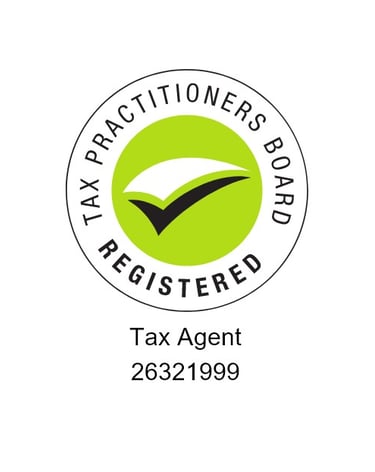

Services
International Students
Blog
Contact
About us
